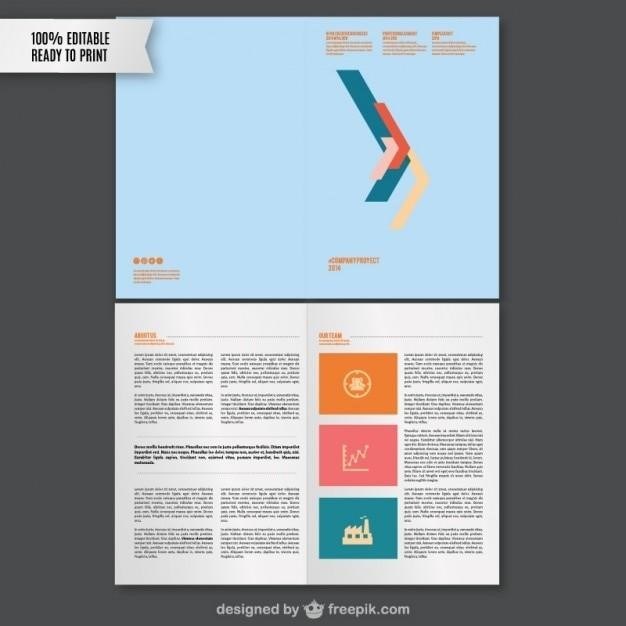Embark on a comprehensive exploration of water fasting‚ encompassing its potential benefits and inherent risks. Discover the science behind autophagy and cellular repair‚ while understanding crucial safety precautions and contraindications. This guide provides a structured approach to responsible fasting‚ ensuring your well-being.
Potential Benefits of Water Fasting

While research is ongoing and more studies are needed to confirm the long-term effects‚ some potential benefits associated with water fasting have emerged. One prominent area of interest is autophagy‚ a cellular process where the body recycles and rebuilds damaged cells. Preliminary studies suggest that water fasting may enhance autophagy‚ potentially contributing to cellular repair and overall health improvement. Another potential benefit lies in blood pressure regulation. Some studies indicate that water fasting‚ particularly in individuals with hypertension‚ may lead to a temporary reduction in blood pressure levels. However‚ this effect’s duration and long-term implications require further investigation. Furthermore‚ water fasting has shown promise in improving insulin sensitivity and blood sugar control in certain individuals. This effect may be particularly relevant for those with insulin resistance or type 2 diabetes.
It’s important to note that these potential benefits are often observed in short-term studies and may not apply to everyone. The magnitude of these effects can vary significantly depending on individual factors such as age‚ health status‚ and the duration of the fast. It’s crucial to remember that water fasting is not a substitute for conventional medical treatments and should not be undertaken without consulting a healthcare professional. The purported benefits should be considered in the context of potential risks and contraindications. Always prioritize a balanced approach to health‚ combining water fasting (if deemed appropriate by your doctor) with a healthy diet and regular exercise.
Autophagy and Cellular Repair
Autophagy‚ a crucial cellular process‚ involves the body’s self-cleaning mechanism where damaged or dysfunctional cells are broken down and recycled. This process is vital for maintaining cellular health and preventing the accumulation of harmful cellular debris. Emerging research suggests a potential link between water fasting and enhanced autophagy. During periods of fasting‚ when the body lacks readily available energy from food‚ it may initiate autophagy to provide an alternative energy source. This process could potentially lead to the removal of damaged components within cells‚ promoting cellular repair and rejuvenation. However‚ the exact mechanisms underlying the relationship between water fasting and autophagy are not fully understood and require further investigation.
While the idea of accelerated autophagy during water fasting is promising‚ it’s important to approach this topic with caution. The potential benefits of enhanced autophagy are not unique to water fasting and can be achieved through other lifestyle interventions. Moreover‚ the extent to which water fasting stimulates autophagy and its subsequent impact on overall health remain subjects of ongoing research. It’s crucial to avoid oversimplifying the complex interplay between autophagy and water fasting and to approach this topic with a balanced and informed perspective. Further research is essential to delineate the precise effects of water fasting on autophagy and its implications for human health.
Blood Pressure Regulation and Cardiovascular Health
Some studies suggest a potential link between water fasting and improvements in blood pressure regulation. One study indicated that a significant percentage of participants with high blood pressure experienced a reduction in their blood pressure levels after a period of water fasting. This observation has sparked interest in exploring the potential cardiovascular benefits of this practice. However‚ the mechanisms underlying this effect are not fully elucidated and require further research.
It’s crucial to note that the observed blood pressure reductions might not be solely attributed to water fasting itself. Other factors‚ such as changes in dietary intake and lifestyle modifications associated with fasting‚ could contribute to the observed results. Moreover‚ the duration and intensity of water fasting can significantly impact the outcomes. Prolonged or improperly managed water fasts can lead to adverse effects‚ including electrolyte imbalances that could negatively influence blood pressure and overall cardiovascular health.
Therefore‚ while preliminary evidence suggests a potential positive effect on blood pressure‚ more research is needed to confirm these findings and understand the precise mechanisms involved. It’s essential to consult healthcare professionals before considering water fasting‚ particularly for individuals with pre-existing cardiovascular conditions. Relying solely on water fasting for blood pressure management without medical supervision is strongly discouraged.
Improved Insulin Sensitivity and Blood Sugar Control
Water fasting has shown promise in potentially improving insulin sensitivity and blood sugar control in some studies. Short-term fasts have been associated with a reduction in circulating insulin levels‚ a factor that could benefit individuals with insulin resistance or type 2 diabetes. The mechanism behind this potential benefit is thought to be related to the body’s metabolic shift during fasting‚ where it utilizes stored energy reserves and reduces its reliance on glucose.
However‚ the effects of water fasting on insulin sensitivity and blood sugar control are complex and not fully understood; Some research indicates that prolonged fasting may temporarily increase markers of insulin resistance after the fast concludes. This suggests a potential rebound effect where the body’s metabolic processes readjust following the period of food deprivation. Furthermore‚ the duration and individual responses to fasting vary significantly‚ making it challenging to draw definitive conclusions.
It’s crucial to emphasize that water fasting should not be considered a standalone treatment for diabetes or insulin resistance. Individuals with these conditions should consult with their healthcare providers before undertaking any type of fasting regimen. Proper medical supervision is necessary to monitor blood sugar levels and ensure safe and effective management of the condition. Improperly managed fasting can lead to dangerous complications.
Risks and Dangers of Water Fasting
While water fasting may offer purported benefits‚ it carries significant risks‚ especially with prolonged fasts or pre-existing health conditions. Dehydration is a primary concern‚ as the body’s water supply is significantly reduced without dietary intake. This can lead to electrolyte imbalances‚ potentially causing symptoms like dizziness‚ weakness‚ and even more serious complications. The lack of essential nutrients can also result in nutrient deficiencies‚ negatively impacting various bodily functions and potentially causing muscle loss.
Orthostatic hypotension‚ a sudden drop in blood pressure upon standing‚ is another potential risk. This can lead to fainting or lightheadedness‚ particularly dangerous for individuals with underlying cardiovascular issues. Furthermore‚ water fasting can exacerbate existing conditions like gout‚ due to increased uric acid levels‚ and may negatively affect kidney function. The absence of crucial nutrients can impair immune function and increase susceptibility to infections.
It’s vital to understand that water fasting is not suitable for everyone. Pregnant or breastfeeding women‚ children‚ adolescents‚ and individuals with a history of eating disorders should strictly avoid it; Those with chronic illnesses‚ including diabetes‚ kidney disease‚ or heart conditions‚ need careful medical evaluation before considering water fasting‚ as it can potentially worsen their conditions. Always prioritize safety and consult a physician before undertaking this practice.
Dehydration and Electrolyte Imbalance
A significant risk associated with water fasting is dehydration. While water is consumed during the fast‚ a substantial portion of daily fluid intake comes from food. Eliminating food intake dramatically reduces overall fluid consumption‚ leading to dehydration. This is further exacerbated by the body’s natural processes during fasting‚ which can increase fluid loss through urination and perspiration. Dehydration can manifest in various ways‚ ranging from mild symptoms like thirst‚ fatigue‚ and headache to more severe consequences such as dizziness‚ muscle cramps‚ and even organ dysfunction.
Dehydration frequently leads to electrolyte imbalances. Electrolytes‚ including sodium‚ potassium‚ and magnesium‚ are essential minerals that regulate various bodily functions‚ such as muscle contractions‚ nerve impulses‚ and fluid balance. During prolonged fasting‚ the body may deplete these electrolytes‚ causing further complications. Electrolyte imbalances can manifest as muscle weakness‚ heart palpitations‚ confusion‚ and in severe cases‚ seizures or cardiac arrest. The severity of dehydration and electrolyte imbalances depends on several factors‚ including the duration of the fast‚ individual health status‚ and environmental conditions.
Careful monitoring of hydration levels and electrolyte status is crucial during water fasting. While plain water is consumed‚ supplemental electrolytes may be necessary‚ particularly during longer fasts. Consulting a healthcare professional is advisable to assess individual risk factors and develop a safe approach to manage potential dehydration and electrolyte imbalances during the fasting period. This professional guidance is essential for mitigating the risks and complications associated with this practice.
Nutrient Deficiencies and Muscle Loss
Potential for Orthostatic Hypotension
Orthostatic hypotension‚ a sudden drop in blood pressure upon standing‚ is a potential risk associated with water fasting. This condition arises from a combination of factors‚ primarily dehydration and reduced blood volume. During a water fast‚ the body’s fluid reserves deplete‚ leading to decreased blood volume‚ which in turn reduces the blood pressure. When an individual transitions from a lying or sitting position to a standing position‚ the blood pressure normally adjusts to maintain adequate blood flow to the brain. However‚ in the case of dehydration‚ this compensatory mechanism may be impaired‚ resulting in a significant drop in blood pressure.
Symptoms of orthostatic hypotension can range from mild dizziness and lightheadedness to more severe symptoms such as fainting or loss of consciousness. These episodes can be particularly dangerous‚ potentially causing falls and injuries. The risk of orthostatic hypotension is amplified by prolonged fasting periods‚ pre-existing cardiovascular conditions‚ and medications that affect blood pressure regulation. Individuals with a history of orthostatic hypotension or other cardiovascular concerns should exercise extreme caution and ideally avoid water fasting altogether.
To mitigate the risk of orthostatic hypotension‚ it’s crucial to stay well-hydrated‚ even during a water fast‚ and to change positions slowly and carefully. This allows the body time to adjust to the changes in blood pressure. Regular monitoring of blood pressure‚ especially during and after a fast‚ is advisable. If any symptoms of orthostatic hypotension appear‚ immediately discontinue the fast‚ seek medical attention‚ and consult a healthcare professional before attempting any further fasting.

Who Should Avoid Water Fasting?
Water fasting‚ while potentially beneficial for some‚ carries significant risks for certain individuals and should be strictly avoided by them. Those with a history of eating disorders are particularly vulnerable‚ as fasting can exacerbate unhealthy eating patterns and trigger relapse. Pregnant or breastfeeding women should absolutely avoid water fasting due to the potential for nutrient deficiencies affecting both mother and child’s health and development. Similarly‚ children and adolescents should not engage in water fasting because their bodies are still growing and developing‚ and they require consistent nutrient intake.
Individuals with chronic health conditions such as diabetes‚ heart disease‚ kidney disease‚ or gastrointestinal disorders should also avoid water fasting. These conditions can be severely exacerbated by the stress placed on the body during a fast. People taking certain medications should consult their doctor before considering water fasting‚ as the fast could interact negatively with the medications‚ reducing their effectiveness or increasing side effects. Those with a history of low blood pressure or orthostatic hypotension should avoid water fasting because of the increased risk of fainting or other dangerous complications.
Furthermore‚ individuals with a history of gout or hyperuricemia (high uric acid levels) should avoid water fasting as it can trigger painful gout flares. Anyone experiencing any concerning symptoms during a water fast should immediately cease the fast and seek immediate medical attention. Before undertaking water fasting‚ it’s crucial to consult with a healthcare professional to assess personal health risks and suitability for this practice.
Preparing for and Safely Performing a Water Fast
Before initiating a water fast‚ thorough preparation is paramount. Consult your physician to discuss your health status and suitability for fasting. They can assess potential risks and provide personalized guidance. In the days leading up to the fast‚ gradually reduce your food intake‚ transitioning to lighter meals. This helps your body adjust to the upcoming metabolic shift. Ensure adequate hydration by drinking plenty of water and electrolyte-rich beverages. Consider taking a multivitamin to mitigate potential nutrient deficiencies during the fast.
During the fast itself‚ prioritize rest and avoid strenuous physical activity. Listen to your body carefully. Pay attention to any unusual symptoms such as dizziness‚ weakness‚ or nausea. If any of these occur‚ immediately break the fast and consult a doctor. Keep a regular schedule for hydration‚ aiming for a sufficient amount of water throughout the day‚ as recommended by your doctor. Avoid smoking and excessive caffeine intake‚ as these can exacerbate dehydration and negatively impact your well-being during the fast.
Monitor your hydration levels closely. Regularly check your urine color; dark urine indicates dehydration. If you are concerned‚ consult your physician. Remember‚ safety is paramount. Do not extend the duration of your fast beyond what is medically advised. Always prioritize your health and well-being throughout the entire process. A medically supervised fast is always the safest option.



0 Comments